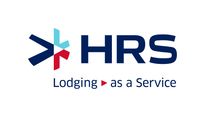HRS Data Analysis Shows Virtual Payment Solutions Lower Direct Hotel Costs

Virtual payment solutions for business travel not only help travelers and streamline accounting processes, but also have an immediate impact on direct costs. A new HRS white paper - "Savings through Transparency" – reveals that the average room price of booked overnight stays in hotels decreases by twelve percent on average after a central, virtual payment solution is introduced. The analysis took into account 30,000 hotel bookings by companies, equally divided into bookings made before and after the introduction of a virtual payment solution.
With virtual payment solutions, companies receive and settle hotel invoices centrally and with no need for paper. A credit card generated at the time of booking settles the hotel invoice; the traveler does not need to pay ahead or figure out travel expense reports. As a result, this gives companies full transparency on all lodging spend, right down to item line level. While companies have been aware of the process advantages – indirect savings – for a long time now, there are also various direct advantages:
- The average rate of rooms booked fell after the introduction of a virtual payment solution, from $138 to $121 – a drop of twelve percent
- The no-show rate, which generates additional costs for the company, is the proportion of bookings for which the traveler does not turn up at the hotel. This also fell, from 4.1 percent to 3.5 percent. Beyond operational efficiency gains, the reduced no-show rate also benefits preferred hotel partners, so they can better manage their inventory.
- Travelers booked their overnight stay 2.5 days earlier than before – 11 days prior to arrival instead of 8.5 days
A Shift Towards Regional and Local hotels
The significant cost reduction in the average rate is explained by two factors. First, earlier booking has the effect of making room rates rise at the time of trade exhibitions. Secondly, the data shows a shift in bookings away from global chains and instead towards regional and local hotels. If such hotels comprised just 30 percent of bookings before the solution was introduced, then the proportion after implementation rose to 40 percent. As a further HRS data analysis shows, hotel options outside of global chains often present less expensive rooms of similar quality, as those properties do not have to factor in franchise fees and other related overhead expenses.
"The study shows that the transparency created by virtual payment solutions appears to steer travelers towards less expensive hotels," said Christian Gall, vice president of payment solutions for HRS. "In effect, their behavior is changing and money is being saved…without them even noticing. This adds a new dimension to the conversation around the benefits of virtual payment, as the focus has been mainly on indirect savings so far."
The white paper can be downloaded free of charge at https://corporate.hrs.com/us/solutions/savings-through-transparency.
About HRS
HRS is reinventing the way businesses and governments work, stay and pay in today's dynamic global marketplace. HRS' advanced platform technology is extending its reach beyond hospitality to meetings, office space management, payment efficiency and crisis recovery. Beyond cost savings in the global post-pandemic economy, HRS clients gain from an unrivaled focus on essential aspects including safety, security and satisfaction. HRS is also recognized for its award-winning Green Stay Initiative, technology that helps corporate hotel programs achieve their NetZero targets, and its groundbreaking Crew & Passengers Solution, which leverages automation to elevate experiences for air and rail operations. Founded in 1972, HRS works with 35 percent of the global Fortune 500, as well as the world's leading hotel chains, regional hospitality groups and payment providers. More information at www.hrs.com/enterprise.
Michael Brophy
+1 214 356 4326
